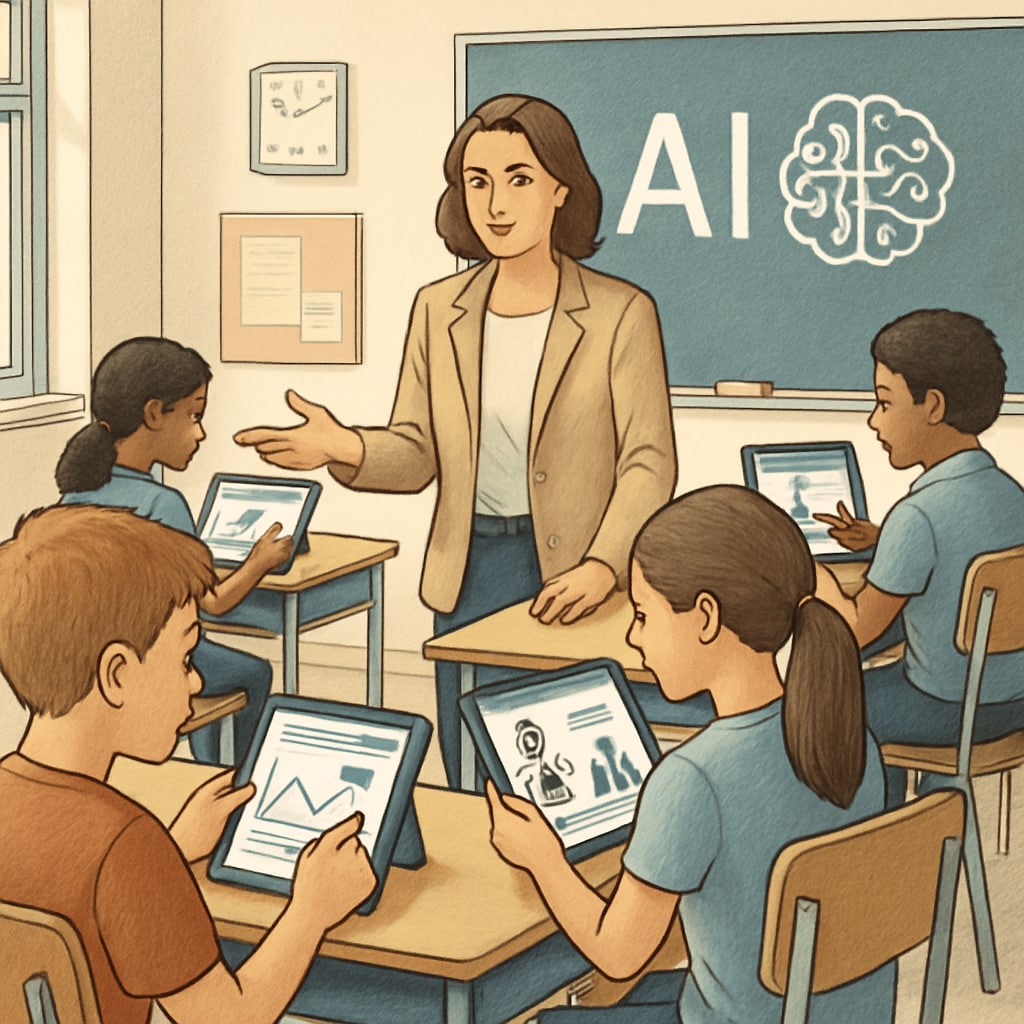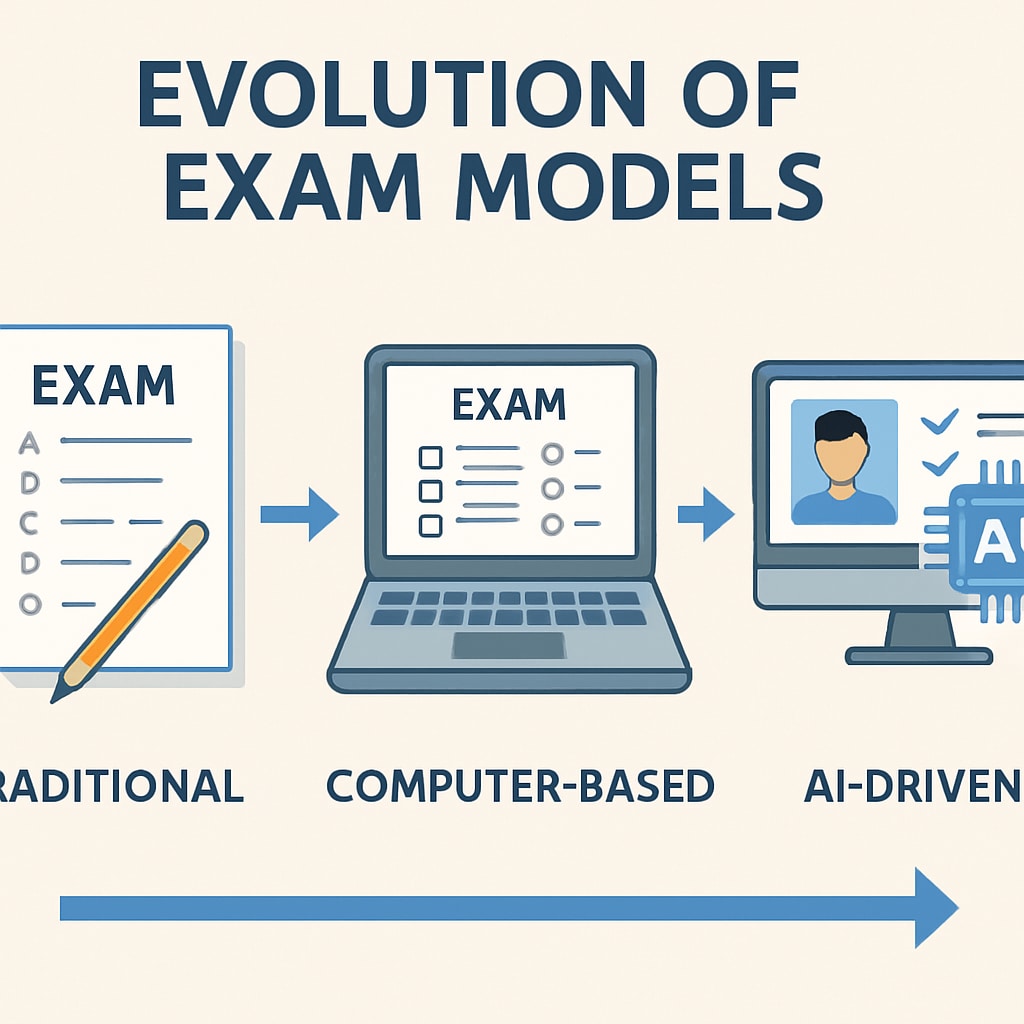Artificial intelligence (AI) is revolutionizing the educational landscape, making traditional competitive exams increasingly inadequate as tools for talent selection and evaluation. As AI continues to reshape K12 education, there is an urgent need to reconsider and reform existing exam models to better meet the demands of this transformative era. Relying solely on standard tests risks overlooking the diverse talents and potential of students, while failing to equip them for the future. This article examines the necessity for reform in competitive exams and explores how a diversified talent evaluation system could address these challenges.
The Impact of AI on Traditional Education and Competitive Exams
AI technologies—such as personalized learning platforms, automated grading systems, and adaptive curriculum tools—are changing how students learn and how educators assess their progress. Traditional competitive exams, which largely focus on rote memorization and uniform testing methods, are failing to keep pace with the dynamic skills required in the AI-driven world. For example, creativity, problem-solving, and interdisciplinary thinking are increasingly valued in modern industries, yet these competencies are often neglected in standardized testing frameworks.

Furthermore, AI’s ability to analyze large datasets allows for more nuanced insights into a student’s learning journey. This enables personalized feedback and tailored instruction, but it also highlights the limitations of one-size-fits-all exams. In the AI era, education systems must evolve to measure a broader range of abilities—beyond academic knowledge—to help students thrive in an ever-changing world.
Why Reforming Competitive Exams is Crucial
The current competitive exam model emphasizes ranking students based on limited criteria, often neglecting critical skills such as collaboration, emotional intelligence, and digital literacy. This approach risks creating a narrow definition of success that fails to account for the diverse talents and aspirations of students. In contrast, AI offers the opportunity to design exams that reflect a more holistic view of student capabilities.
Key reasons for reforming competitive exams include:
- Preparing students for future careers: AI is reshaping the global job market, demanding skills such as adaptability, innovation, and critical thinking.
- Encouraging lifelong learning: Exams should inspire curiosity and the pursuit of knowledge rather than stress and test fatigue.
- Promoting equity: AI-driven evaluation methods can reduce biases and provide fairer assessments for students from diverse backgrounds.

Building a Diversified Talent Evaluation System
To align with the advancements of AI, competitive exams must incorporate a diversified talent evaluation system that reflects a broader spectrum of student abilities. This system could include:
- Project-based assessments: Allowing students to demonstrate their skills through real-world applications and group collaborations.
- Portfolios: Encouraging students to showcase their progress and achievements across multiple domains, such as arts, coding, or entrepreneurship.
- AI-enhanced adaptive testing: Providing personalized exam experiences that adjust to a student’s level and learning style.
- Peer and self-assessments: Promoting reflective practices and interpersonal skills in evaluation processes.
In addition to these methods, incorporating AI tools in assessments can enable educators to design exams that are both scalable and tailored, ensuring that each student’s unique potential is recognized and nurtured.
Challenges and Opportunities in Transitioning to AI-Driven Exams
While the adoption of AI in competitive exams offers significant benefits, it also presents challenges. For example, integrating AI systems into schools requires substantial investments in technology infrastructure, teacher training, and data security measures. Moreover, ethical considerations, such as ensuring that AI algorithms are free from bias, must be addressed.
However, the opportunities far outweigh the challenges. AI-driven exams can provide deeper insights into student performance, promote inclusivity, and create a more engaging and personalized learning environment. By embracing these innovations, education systems can prepare students not just for exams but for lifelong success.
As a result, the shift toward AI-enhanced evaluation methods is not just necessary—it is inevitable. Educators, policymakers, and stakeholders must collaborate to ensure that competitive exams evolve to reflect the realities of the AI era, fostering a generation of learners equipped to navigate the complexities of the future.
Conclusion: Reforming competitive exams in the AI era is an essential step to ensuring that K12 education systems are equitable, effective, and future-ready. By adopting diversified evaluation methods and leveraging AI technologies, we can build a more inclusive and dynamic approach to talent selection, empowering students to unlock their full potential.


